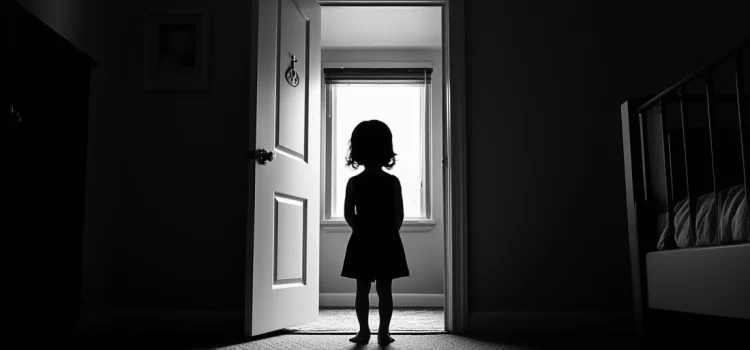

This article is an excerpt from the Shortform book guide to "Unbound" by Tarana Burke. Shortform has the world's best summaries and analyses of books you should be reading.
Like this article? Sign up for a free trial here.
What’s the connection between childhood sexual abuse and trauma in adulthood? What was Tarana Burke’s experience of childhood sexual abuse?
Burke says the first time she was sexually assaulted, she was seven years old—too young to understand what was happening to her. Another horrific occurrence happened when she was nine, but didn’t speak up for two reasons.
Continuer reading to learn about the trauma Burke endured from these instances of sexual abuse.
Burke’s Experience of Childhood Sexual Abuse
When she was playing outside at age seven, an older boy who lived in her neighborhood led her out of her parents’ sight, penetrated her, and ejaculated on her (she thought he urinated). Then, beginning at age nine, she was molested by a different boy in her neighborhood. He took photos of the abuse and used them to blackmail her into submission, which worked until a painful encounter (he knocked against the cast on her broken leg) spurred Burke to fight back and steal his camera at the age of 12.
The abuse Burke endured made her feel humiliated and frightened, showing the connection between childhood sexual abuse and trauma, but she didn’t tell anyone what happened for two reasons. First, she felt that she had done something wrong and would get into trouble if she disclosed the assault. Burke explains that she had been taught not to let anyone touch her genitals, but she didn’t understand that this advice was intended as a warning about sexual violence. She blamed herself for allowing someone to touch her, even though she didn’t have a choice. This led her to develop a deep sense of shame and conclude that she was a bad person. As a result, she often falsely confessed sins at her Catholic school, contriving opportunities to repent for what she considered truly sinful (her victimization).
Second, Burke worried that her stepfather would go to prison for hurting the boys who abused her. Burke describes her stepfather as a respected authority figure in her neighborhood, and she’d seen him become violent with others who harmed people in their community. Since they were family, this possibility seemed even more likely. When Burke stole her abuser’s camera and ran away from him, she ran into an elderly neighbor who guessed what had happened. This neighbor told Burke not to tell her stepfather about the abuse because he was too valuable a part of the community to lose to prison, reinforcing Burke’s silence. (Later, her stepfather went to prison for an unrelated reason, and Burke says she inexplicably felt she was to blame.)
| Sexual Violence Leads to Suffering and Silence We use a variety of phrases throughout this guide to describe different forms of sexual violence (an umbrella term that covers all nonconsensual sexual acts); these include (childhood) sexual abuse, sexual assault, molestation, and rape. We’ll briefly define these terms as they’re most often used in the US. (Note, however, that scholarly and legal definitions of each term may vary widely.) Then, we’ll discuss two common consequences of sexual violence: suffering and silence. Sexual assault and rape generally refer to a single sexual violation. Legally speaking, rape is usually defined as nonconsensual penetrative sex, whereas “sexual assault” can cover a range of penetrative and non-penetrative actions that are nonconsensual. Repeated sexual assault or rape may constitute sexual abuse—we tend to use the word “abuse” to describe a pattern of violence that takes place over a long period of time rather than all at once. Childhood sexual abuse and molestation are often used interchangeably to describe any sexual violation of a child, isolated or recurrent, and they can take place with or without physical touch. Regardless of when and how sexual violence occurs, it universally evokes negative feelings—like the fear, humiliation, and shame Burke describes—among survivors. (Some people prefer to be called survivors, while others prefer to be called victims; Burke uses both terms, and we’ll vary our use throughout the guide.) According to experts, sexual violence is inherently traumatizing—the victim’s brain recognizes it as a survival threat, which triggers a state of both psychological and physiological overwhelm that can be difficult to recover from. Most survivors carry that sense of overwhelm long after the violence has passed and develop a condition called post-traumatic stress disorder (PTSD). Sexual trauma can be debilitating. Relatively few victims of sexual violence disclose their experiences to a trusted individual, and even fewer report the violence to an authority like the police. Disclosure and reporting are even less common among children than among adults. Emotions like guilt, shame, and fear (for example, fear of not being believed or of eliciting a violent response, as in Burke’s case) are among the reasons for survivors’ silence. Another reason is that many victims don’t know that their experiences qualify as sexual violence. As Burke illustrates, this is common among children who lack the cultural context to understand what happened to them; it’s also common among adults who are underinformed or confused about definitions of sexual violence. |

———End of Preview———
Like what you just read? Read the rest of the world's best book summary and analysis of Tarana Burke's "Unbound" at Shortform.
Here's what you'll find in our full Unbound summary:
- The origin of the viral phrase “me too”
- What Tarana Burke did to heal from the experience of childhood sexual abuse
- The story of the #MeToo movement






